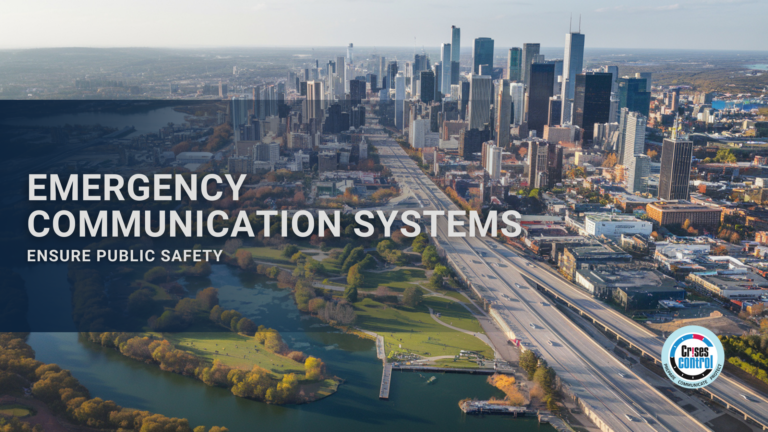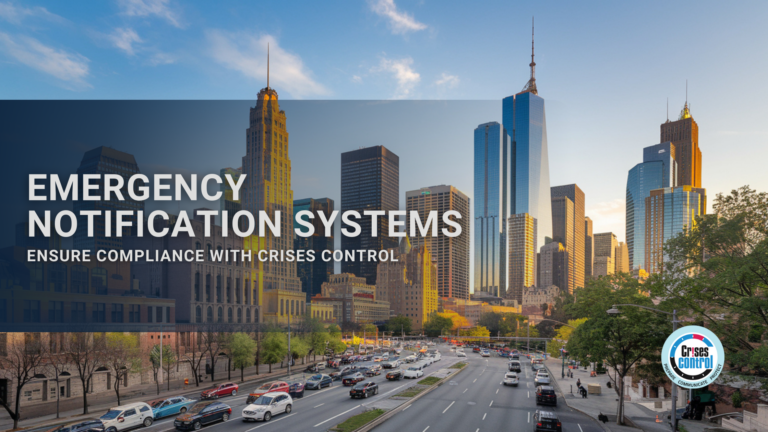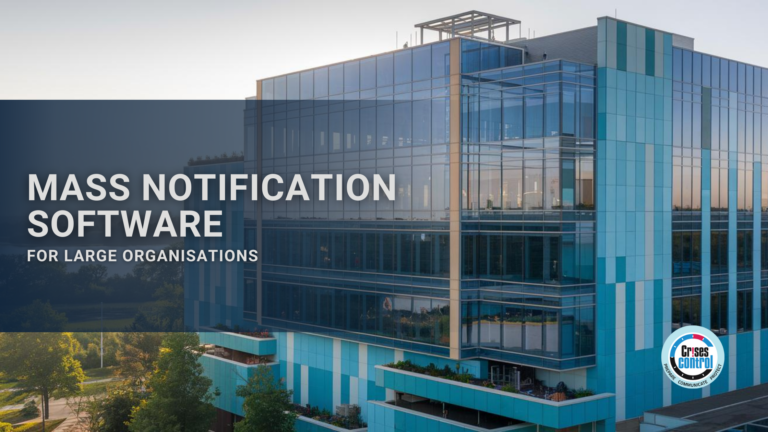
The Critical Role of Emergency Notification Systems in Saudi Arabia’s Oil and Gas Industry
Written by Anneri Fourie | Marketing Executive The oil and gas industry is the backbone of Saudi Arabia’s economy and plays a key role in the global energy market. However, this critical sector faces a range of risks, from equipment failures

The Role of an Emergency Notification App in Business Continuity: How to Stay Operational During Crises
Written by Anneri Fourie | Marketing Executive Businesses face constant threats from unexpected events like natural disasters, cyberattacks, equipment failures, or even global pandemics. When

How Emergency Mass Notification Systems Drive Faster Disaster Recovery in North America
Written by Anneri Fourie | Marketing Executive Disasters are becoming more frequent and more severe, putting businesses across North America at greater risk. Whether it’s

Empowering Government Response Through Critical Event Management Platforms
Written by Anneri Fourie | Marketing Executive Government agencies face a variety of challenges—from natural disasters and public health emergencies to civil unrest and cybersecurity

Protecting Students: How Emergency Alert Software Enhances Campus Safety
Written by Shalen Sehgal | CEO As educational institutions grow in size and complexity, ensuring the safety of students and staff has become a top

Why a Mass Notification System is Critical for Employee Safety: Safeguard Your Organisation in a Crisis
Written by Anneri Fourie | Marketing Executive Organisations face various potential crises—from natural disasters and cyberattacks to health emergencies and even terrorism. These situations can

How Emergency Communication Systems Can Improve Public Safety and Crisis Management
Written by Anneri Fourie | Marketing Executive In today’s world, where crises can unfold in a matter of minutes, the ability to communicate swiftly and

Safeguarding Your Business Against Natural Disasters with a Mass Notification System
Written by Anneri Fourie | Marketing Executive As Hurricane Milton impacts Florida, businesses are reminded of the devastating winds, torrential rain, and dangerous storm surges

Why Crisis Communication Software is a Game Changer for Emergency Response Teams
Written by Anneri Fourie | Marketing Executive In critical situations, response time can mean the difference between effective resolution and escalating chaos. Effective communication is

Emergency Notification Systems and Compliance: Safeguarding Your Business with Crises Control
Written by Anneri Fourie | Marketing Executive Emergencies are unpredictable by nature, and in today’s fast-moving world, businesses must be ready for anything, whether it’s

5 Key Benefits of Incident Management Software for IT Teams
Written by Shalen Sehgal | CEO In today’s fast-paced, tech-driven business world, IT teams are the unsung heroes, ensuring systems are running smoothly and addressing

How Business Continuity Software Empowers Remote Teams in a Crisis
Written by Anneri Fourie | Marketing Executive In today’s world of increased remote work, businesses face a unique set of challenges when managing teams during

Streamlining Emergency Response in Hospitals with Critical Event Management Software
Written by Anneri Fourie | Marketing Executive In healthcare, every second is crucial during an emergency. Whether it’s a natural disaster, power outage, or a

The Lifeline of Large Organisations: Why a Mass Notification System is Essential
Written by Anneri Fourie | Marketing Executive In an era where crises can strike unexpectedly, the ability to communicate effectively during emergencies is paramount for

From Fire Drills to Active Threats: Modernising School Safety with Crisis Management Software
Written by Anneri Fourie | Marketing Executive In an era where the safety and well-being of students and staff are constantly threatened by new and







